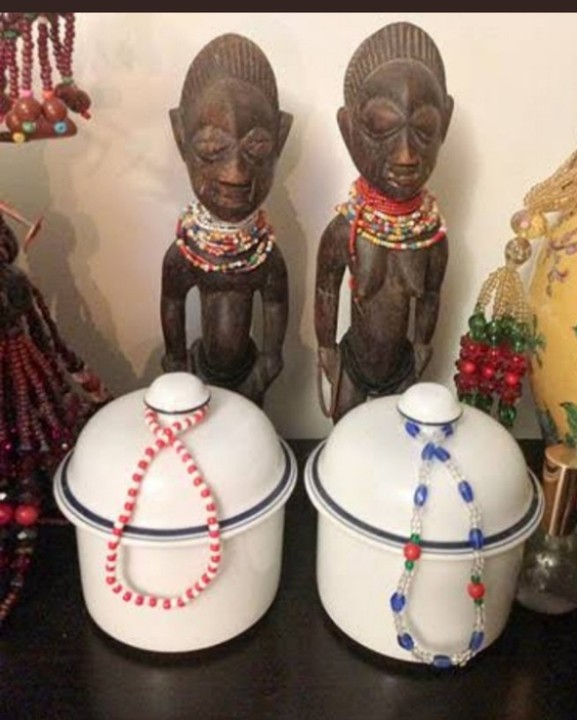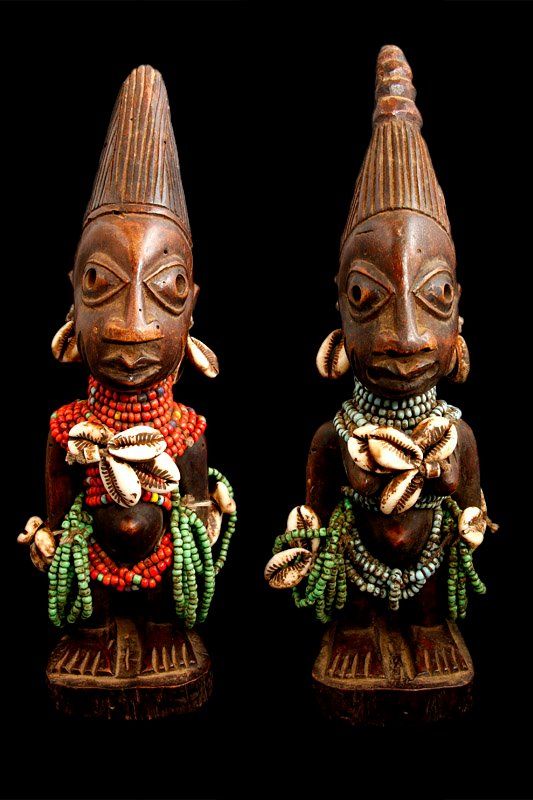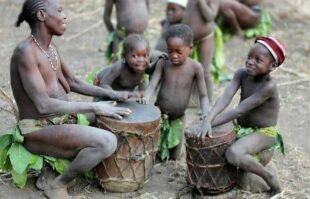The beauty of African culture lies in its historical places, people who have left significant legacies, and their lifestyles, which include songs, dance, dressing, and language, among others.
Nigeria is one of the prominent African countries that respect its culture and traditions, as well as sustains them, and passes them from one generation to another. Nigeria’s culture places more emphasis on its origins, especially the names of people who have made history and places they have been to.
History has it that Nigerians name their children by looking inward to their generation and their experiences from one generation to another.
Nigeria is a conglomeration of many ethnic groups, whose culture and traditions differ, but these cultural activities are what bring values to their ethnicity. One such culture is what the Yoruba people call “Oriki,” which means ‘panegyric.’
The Yoruba people cherish their oriki, ranging from family oriki, birth oriki, and lineage oriki. The Yoruba people of Western Nigeria are recognized for having a high prevalence of twin births, referred to as ibeji in Yoruba. Twins are adored in Yoruba culture, and they are treated as gods. The Oriki Ibeji (Yoruba twins panegyric) is translated into English below.
Because of its high rate of twin births, Igbo-Ora, a small village in Oyo state, has been dubbed the “Twin Capital of the World.” There are 158 twins per 1000 births in the town, according to reports. Every family in the town has at least one twin, according to one of the town’s residents.

History
In the Yoruba religion of the Yoruba people of Nigeria, Ibeji is the name of an Orisha (god) who represents a pair of twins. However, the Yorubas in diaspora in Latin American religions identify twins with Saints Cosmas and Damian. Twins are considered magical in Yoruba theology and culture, and they are protected by the god (Orisha) Shango.
The twins’ firstborn is known as Taiwo in Yoruba, while the second born is known as Kehinde. The second twin, on the other hand, is considered the elder twin. Why? Before coming in, Kehinde (the second) is said to have sent Taiwo (the first) to look around and see if the earth is fit and beautiful.
Omokehinde means ‘the one who comes after Taiwo’ or ‘the second-born of the twins.’ Kehinde is a short form of Omokehinde, which means ‘the one who comes after Taiwo’ or ‘the second-born of the twins.’ “The first to arrive’ is what Taiwo signifies.
Oriki Ibeji
Ejire ara Isokun
Ẹ̀jìrẹ́ ará ìṣokún.
Ẹdúnjobí
Ọmọ ẹdun tíí ṣeré orí igi
Ọ́-bẹ́-kẹ́ṣé-bẹ́-kàṣà,
Ó fẹsẹ̀ méjèèjì bẹ sílé alákìísa;
Ó salákìísà donígba aṣọ.
Gbajúmọ̀ ọmọ tíí gbàkúnlẹ̀ ìyá,
Tíí gbàdọ̀bálẹ̀ lọ́wọ́ baba tó bí í lọ́mọ.
Wínrinwínrin lójú orogún
Ejìwọ̀rọ̀ lojú ìyá ẹ̀.
Tani o bi ibeji ko n’owo?
Ẹ̀jìrẹ́ okin
Ẹ̀jìrẹ́ ti mo bi, ti mo jo
Ẹ̀jìrẹ́ ti mo bi, ti mo yó
Ẹ̀jìrẹ́ ara isokun
Omó édun nsere lori igi
Ẹ̀jìrẹ́ wo ile olowo ko ló
O wo ile olola ko ló bé
Ile alakisá lo ló
Ẹ̀jìrẹ́ só alakisá di alasó
O só otosi di olowo
Bi Taiwo ti nló ni iwaju
Bééni, Kéhinde ntó lehin
Taiwo ni omode, Kehinde ni ebgon
Taiwo ni a ran ni sé
Pe ki o ló tó aiye wò
Bi aiye dara, bi ko dara
O tó aiye wò. Aiye dun bi oyin
Taiwo, Kehinde, ni mo ki
Eji woró ni oju iya ré
O de ile oba térin-térin
Jé ki nri jé, ki nri mu
Ejire oyila winiwini loju orogun,
ejiworo loju iya re
Mba bejire mbayo,
O be kese be kasa,
ofese me jejeji be sile alakisa
o so alakisa di onigbaso,
okan ni mba bi mba yo,
sugbon meji lowole tomiwa,
Gbajumo omo ti ngba ikunle iya,
ti ngba idobale lowo baba to bi won lomo
Ejire ara isokun, edunjobi omo edun tin sere ori igi
Epo nbe, ewa nbe, aya mi oja lati bi ibeji
Taiyelolu ma yo se se,
Akehinde gbegbon
mayo se se
Ejire oyila, ema yo se se, nbabi edunjobi
mba yo pe mobi oba omo.
Edumare bawa da awon Ibeji wa si.
Amin Ase!

Translation
Every set of twins hails from Isokun.
A relative of monkeys you are
Hoping and jumping from one tree branch to the other
Jumping helter-skelter, you landed in a wretched man’s place
Turning around his misfortunes
A rare set of children that commands much and undue honour and respect from even their parents
To your stepmother, you are an unwelcome sight
But to your very mother, you are both emperors of two empires!
Charming twins
Twins that I gave birth to, that resemble me.
Twins that I gave birth to, that make me happy
Twins inhabitants of Isokun
Children of the monkey who plays on the top of the trees
Twins come into the house of the rich man and do not go away
He comes into the house of the wealthy and doesn’t request anything
To the house of the filthy he goes
Twins watch over the filthy man and he becomes dressed.
He watches over the poor man and he becomes rich
If Taiwo goes ahead
Likewise, Kéhinde remains behind
Taiwo is the child, Kéhinde is the elder
Taiwo is sent to get out first
I order to taste the world
(To see) either it is good or bad
He tastes the world. The world is sweet as honey
Taiwo, Kéhinde I greet you
Only they two stand before the mother
He comes into the kings house laughing joyfully
Let us get something to eat (and) something to drink





